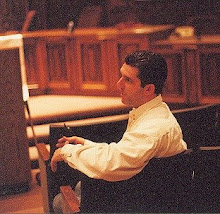Mortgage Rates Are Rising
Rates are rising. Period. We lost another .05 on the bond price today, which means roughly .25 less tomorrow on the rate/price sheet, meaning that we’re likely right on the bubble between 6.25% and 6.375% on the 30-year fixed. We’ve explained before how rate sheets work, so I’m not going to do it again here.
But rates are rising. What does this mean for the average homebuyer/homeowner?
Homeowner: if you have a fixed rate, it means you ought to keep it if it’s lower than 7%. If you have an ARM with less than 3 years to go until the rate adjusts, you ought to look at swapping over to a fixed rate. If you have a fully adjustable rate, and you can’t get off it without a massive prepay penalty, just hang on. If you can, we definitely ought to talk.
Additionally, in order for a borrower to qualify for a loan, there are debt-to-income ratios that have to be met. The higher the payment, the harder the qualifying. As those ratios rise, they exert negative pressure on housing prices. A $200,000 seller has to reduce his home price by $10,000 to drive the payment at 7% down to where it was at 6.5%. A $150,000 home has to be discounted to $142,500. Per $10,000 of home value, a .5% rise in mortgage interest rates strips $500 off the price of the house. The rise in interest rates from 5.75% in June to 6.25% has cost homeowners $500 for every $10,000 of value in their home.
Interestingly, the Fed is increasing interest rates in order to fight inflation. Inflation drives up the value of your home. The Fed moves are therefore negative for homeowners in two ways – it depresses the buying power of your potential purchaser and it restricts the potential increase of your equity. I know, you’re saying you don’t like inflation because it makes milk more expensive. It does indeed. But inflation is expressed as a percentage, right? The larger the amount in question, the greater the increase in raw dollars as inflation rises. So I have a question: how much milk would you have to buy before you paid out an additional $10,000 due to inflation? But that’s what the “inflation-fighting” has cost you on your home. Do you think you’re ahead on the deal? Me neither.
Homebuyer: rising rates make things complicated. Here’s an example: if you’re trying to buy a $200,000 house, and you get the regular rate of 6.25%, the monthly payment is $1231 (all these numbers are principal and interest). However, if the rate rises to 6.5%, the payment is $1264. $31/mo doesn’t sound like much, but how about $360/yr? At 7%, you’re paying $1330. That’s $1000 more every year.
It may seem like, due to the numbers above about negative pressures on home prices, that you’re getting a good deal by having rates go up. Well, actually, no. At best, you’re getting an offset as prices rise to meet the amount you have to pay. But there’s a better way to offset the increase in interest rate, and that is an increase in wages.
First off, wages generally rise with inflation. Second, recently, wages in most industries have outstripped inflation, so that’s a good thing. Calculate it like this: you make $3500/mo. Interest rates are rising, so that $200,000 house you want is going to cost you $100 more per month to get into. To break even, your income will need to rise just 2.8%. Expressed in hours, based on a 40 hour workweek, you’d need to work about 1 more hour a week. If you got a Christmas bonus of $500, you’d need to work 1 more hour every two weeks. Even if you were working at McDonald’s, you’d need only 17 hours a month to break even. It’s much easier to make up the loss of purchasing power with an increase in wages than any other way.
Wage increases depend on business growth, which is retarded by rising interest rates. So the Fed is out to get you, too.
The good news for both homeowners and homebuyers is that so far, we don’t have a major collapse underway. Trying to make up the loss from a rise in rates to, say, 9% is much harder. And though that much increase is not inconceivable, it would be enormously unexpected.
Bottom line advice to the general populace: if you own, hold. If you don’t own, buy. And I’d do it as soon as possible. We can recommend the people to help you, and we guarantee you’ll like them.


<< Home